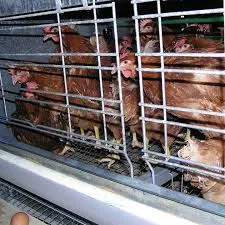Exploring the Benefits and Innovations of Livestock Feed Mixers for Optimal Animal Nutrition and Efficiency
Jul . 31, 2024 10:10 Back to list
Exploring the Benefits and Innovations of Livestock Feed Mixers for Optimal Animal Nutrition and Efficiency
The Importance of Livestock Feed Mixers in Modern Agriculture
In the ever-evolving landscape of modern agriculture, the efficiency and productivity of livestock farming have taken center stage. One of the critical components that contribute to the overall success of livestock operations is the use of feed mixers. Livestock feed mixers play a crucial role in ensuring that the animals receive a balanced and nutritious diet, which is essential for optimal growth, health, and productivity.
What is a Livestock Feed Mixer?
A livestock feed mixer is a specialized machine designed to combine various feed ingredients into a uniform mixture. These mixers come in various types and sizes, catering to the specific needs of different livestock operations. Whether it be a small farm or a large-scale commercial operation, the choice of the feed mixer can significantly impact the quality of feed and, subsequently, animal performance.
Benefits of Using Feed Mixers
1. Nutritional Balance One of the main advantages of using feed mixers is the ability to create a balanced diet tailored to the specific requirements of various livestock species. With a precisely mixed feed, farmers can ensure that their animals receive the right proportions of vitamins, minerals, and nutrients, which are critical for growth and production.
2. Efficiency and Time-Saving Manual mixing of animal feed can be labor-intensive and time-consuming. Feed mixers streamline the process, allowing farmers to efficiently blend ingredients with minimal effort. This not only saves time but also reduces labor costs, making it a more economical solution for farmers.
livestock feed mixers

3. Consistency in Feed Quality Consistency is key when it comes to animal feed. Variations in feed quality can affect animal health and productivity. Feed mixers ensure that each batch of feed is uniform, reducing the risk of inconsistency that could arise from manual mixing.
4. Reduction of Feed Waste Using a feed mixer can also help reduce feed waste. By producing a well-mixed and homogenous feed, animals are less likely to sort through the feed, leading to better intake and less spillage. This not only maximizes the efficiency of feed utilization but also promotes better overall health in livestock.
5. Customizable Formulations Feed mixers allow farmers to customize feed formulations based on the specific needs of their livestock, taking into account factors such as age, weight, and production stage. This flexibility enables farmers to adapt their feeding strategies to meet changing nutritional requirements throughout the year.
Types of Livestock Feed Mixers
There are several types of feed mixers available, including vertical mixers, horizontal mixers, and feed trucks. Vertical mixers are typically recognized for their ability to effectively blend dry ingredients, while horizontal mixers can handle larger batches and may also incorporate wet components. The choice of mixer often depends on the operation's scale and specific feeding goals.
Conclusion
In conclusion, livestock feed mixers are an invaluable tool for modern agricultural practices. They not only enhance the nutritional quality of animal feed but also promote operational efficiency and cost-effectiveness. As the demands of livestock production continue to increase, investing in effective feed mixing technology becomes a strategic priority for farmers seeking to optimize their operations. By leveraging the benefits of feed mixers, farmers can ensure healthier livestock, improved productivity, and ultimately, a more sustainable agricultural future.
-
Automatic Feeding Line System-Pan Feeder Nipple Drinker|Anping County Yize Metal Products Co., Ltd.
NewsJul.29,2025
-
Hot Sale 24 & 18 Door Rabbit Cages - Premium Breeding Solutions
NewsJul.25,2025
-
Automatic Feeding Line System Pan Feeder Nipple Drinker - Anping County Yize Metal Products Co., Ltd.
NewsJul.21,2025
-
Automatic Feeding Line System Pan Feeder Nipple Drinker - Anping County Yize Metal Products Co., Ltd.
NewsJul.21,2025
-
Automatic Feeding Line System - Anping Yize | Precision & Nipple
NewsJul.21,2025
-
Automatic Feeding Line System - Anping Yize | Precision & Nipple
NewsJul.21,2025






